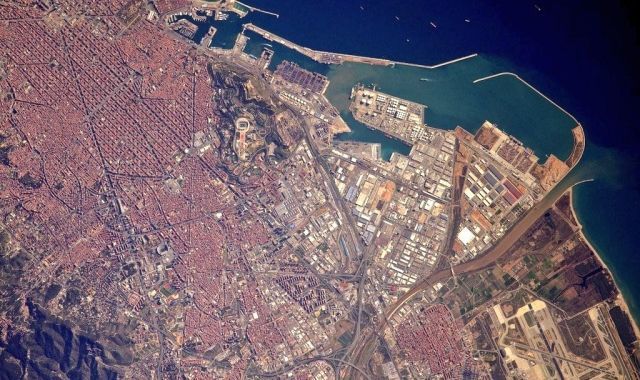
What happens in a city when there is flooding? There are companies that calculate the height at which the water can rise, but the question is how this crisis might affect city services. This is what Opticits does, helping cities to create urban resilience plans. The startup has created the first online platform "for local authorities and companies to study the interdependence and effects between the different services in a city during a crisis," says Ignasi Fontanals, the company’s CEO.
Opticits allows authorities to simulate what would happen if water or power fails and how the lack of the service would affect all the others. A practical example: last year there was flooding on Barcelona’s Ronda de Dalt ringroad, which caused traffic problems and a water outage that meant the Vall d'Hebron hospital could not do operations. "We create models and simulate the domino effects in a city in these situations and thanks to that they are capable of creating urban resilience plans," says Fontanals.

Flooding on the Ronda de Dalt caused disruption in the Vall d'Hebron hospital
Resilience is the capacity of someone or a system, when faced with an impact or crisis, to recover, overcome, learn and improve. People, metals and also cities are resilient. "An impact could be the terror attacks of August 17 or the underground strike in February, but once the crisis has passed, all those affected have to sit down and analyse the situation to learn and improve," says the entrepreneur. And improving means that "the next time there is a crisis in the city, instead of things being paralysed for a week, the stoppage is only for two days," for example. Opticits did not invent this concept, large organisations like the Rockefeller Foundation fund Chief Resilience Officers, people in councils devoted to urban resilience, who understand local authorities as a system of systems of all the interrelated services: "In which the water system is related to that of gas, waste disposal has a connection with local police, transport with social services, etc."
There are 100 cities in the world that employ such a figure, and Opticits is the first company that has created an online tool so that any council can come up with its own resilience plan. "A clear example was during the terror attacks. Operation Gàbia meant that hundreds of vehicles with families were stuck on the Ronda ringroads, in the end it was local people who helped those who trapped," that is an effect that can be avoided with the Opticits program.
A startup born during a blackout
The Barcelona startup, located in the Salle Technova and which began in the IQS, works together with a range of experts in cities: technicians, operators, public and private companies. And this combined with simulation methodologies allows cities to come up with their own urban resilience plans: "We offer our platform as the city’s virtual resilience office."
At the moment a number of cities are working with Opticits: Terrassa, Sant Cugat, Olesa de Montserrat, Tremp, Garrotxa, Benidorm, Barcelona, Bristol and Lisbon.
The idea came out the IQS when a group of researchers helped the Barcelona city council to study what happened after the great blackout of July 23 2007. This group of researchers came up with a resilience study for the city and designed the first version of the program used by Opticits. With this study, the council created urban resilience committees in the city, which are still working today.
Once this project was completed and the council was following it, in 2013 the IQS decided to set up Opticits and the Hazur tool, which includes the methodology from the experience of the blackout so it could be taken to other cities.
The startup has taken part in an acceleration programme in the US called Climate Venture 2.0, which specialises in investment of social impact. Currently, the company is undertaking an investment round to find a million euros in funding and already provides work for five people.